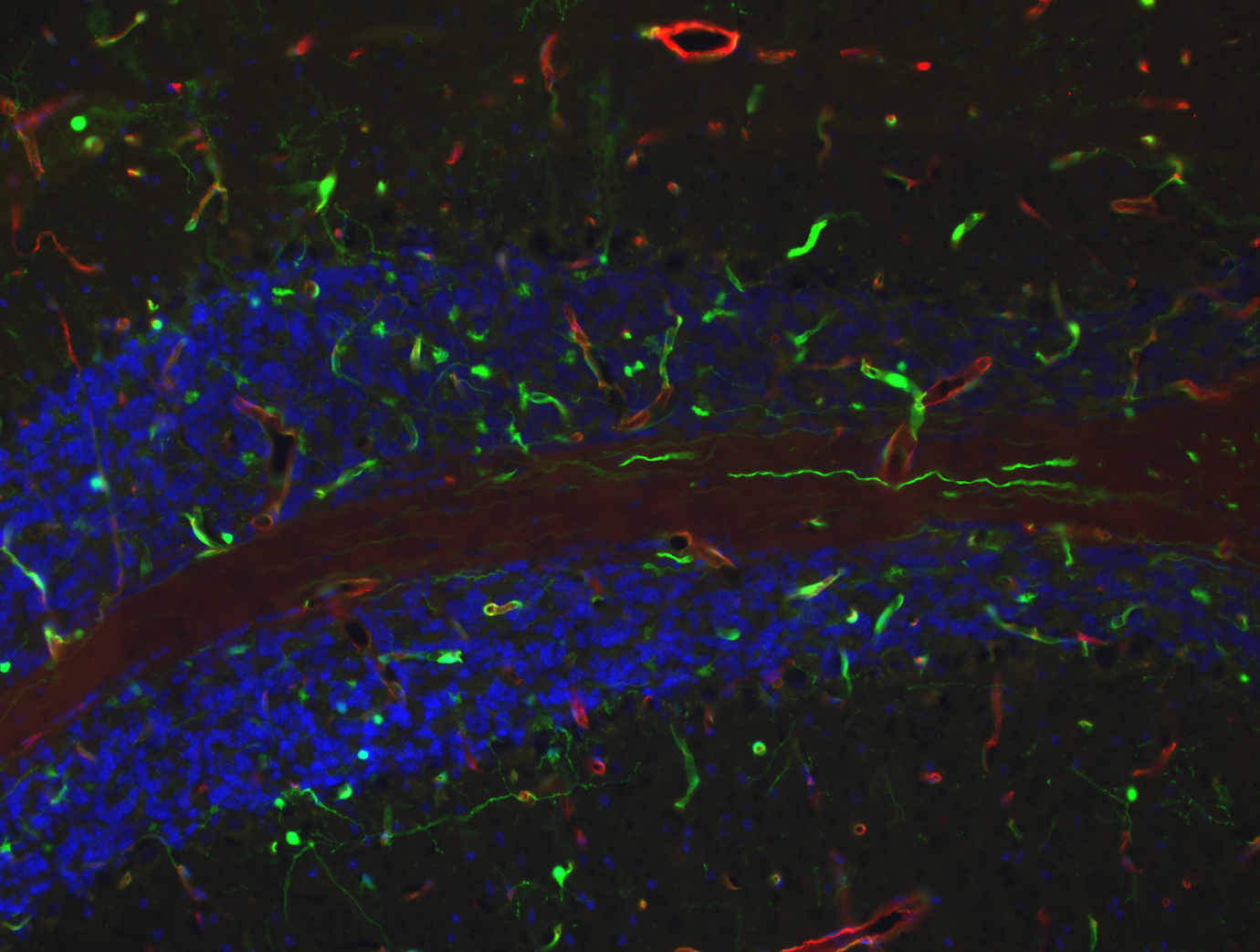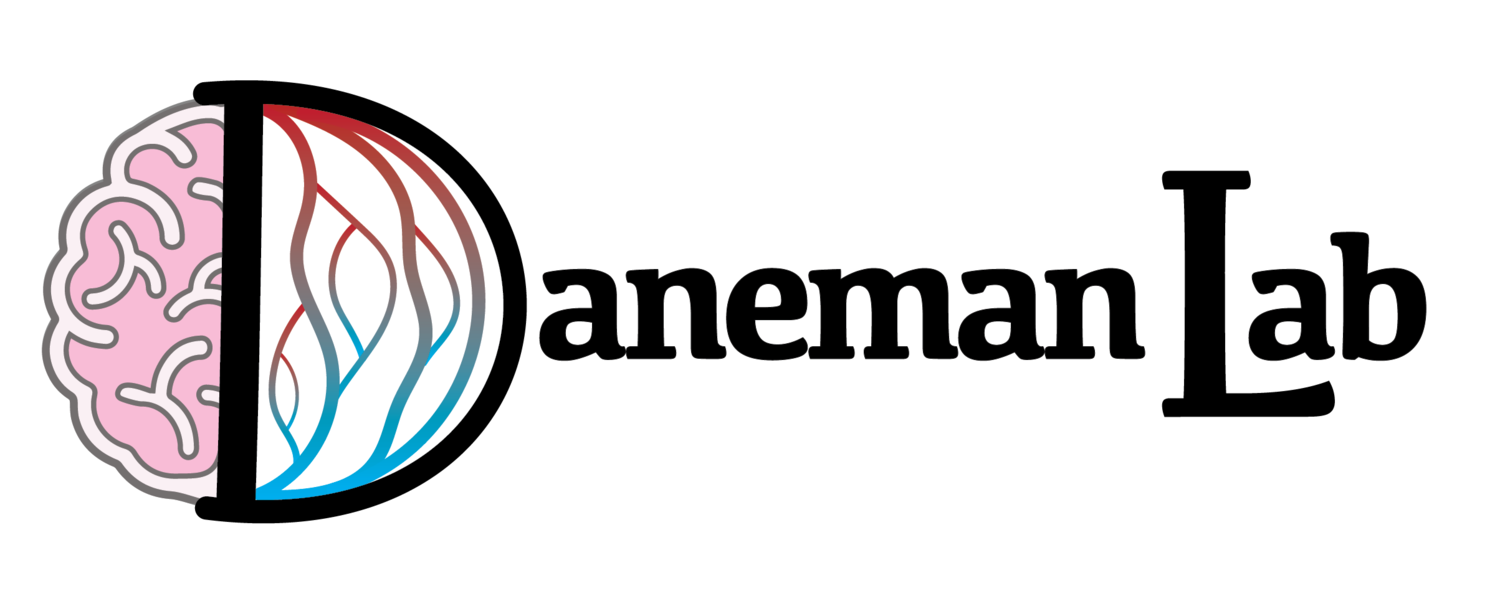Welcome to the Daneman Lab!
UC San Diego - School of Medicine
Department of Neurosciences
Department of Pharmacology

Molecular mechanisms that regulate the blood-brain barrier in health and disease.
Our goal is to understand the molecular mechanisms that regulate blood-brain barrier (BBB) function during health and disease. The BBB is a specialized structure formed by the blood vessels in the central nervous system (CNS) that is critical for proper brain function as well as protecting the brain from injury and disease.
In most tissues the blood vessels are leaky allowing a relatively free flow of molecules and ions from blood into tissues, whereas in the brain, the blood vessels tightly restrict the movement of molecules and ions between the blood and the brain. This barrier clamps the extracellular environment allowing for proper neuronal communication while also limiting toxins, pathogens and even the body’s own immune system from entering and damaging the CNS. Breakdown of the BBB occurs during stroke, edema, brain trauma, and multiple sclerosis and is a major component of the symptoms and progression of these diseases. Furthermore, the BBB not only impedes the movement of toxins and pathogens, but also inhibits the delivery of potential therapeutic agents to the CNS.

We use a combination of cellular, molecular and genetic approaches to understand the mechanisms of BBB formation and function. We are interested in asking:
What are the molecules in CNS vascular cells that form the BBB?
What are the signaling mechanisms that regulate the formation of the BBB during development, and dynamic function throughout life?
What are the molecular mechanisms that lead to BBB disruption during neurological disease?
The goal of our work is to elucidate these mechanisms, such that we will be able to develop therapeutics to rebuild the barrier to treat neurological diseases, as well as methods to bypass the barrier to deliver drugs to the CNS.
